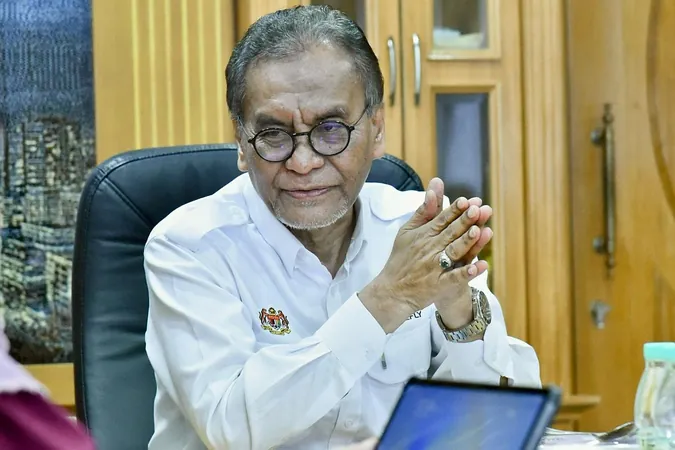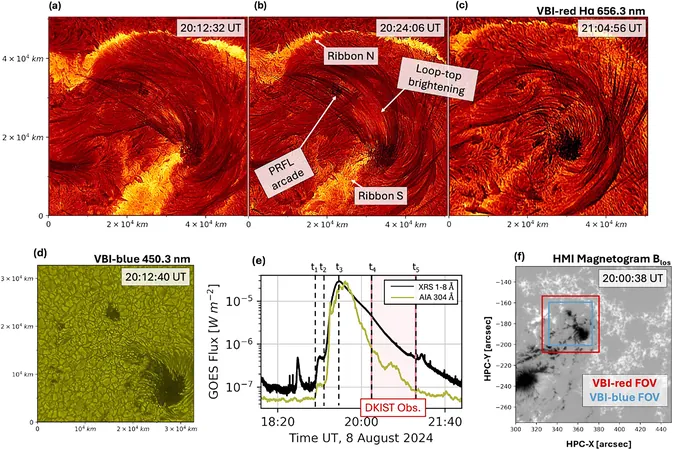
Over 9,000 Malaysians on PrEP as HIV Cases Surge Among MSM
2025-08-29
Author: Wei
KUALA LUMPUR, August 29 — A staggering 9,309 individuals in Malaysia have embraced HIV pre-exposure prophylaxis (PrEP) as of June 2025, according to Health Minister Dzulkefly Ahmad. This surge in PrEP usage comes amid alarming increases in HIV infections among men who have sex with men (MSM).
PrEP, a groundbreaking medication designed to thwart HIV infection, is being offered at 35 government health clinics nationwide since its launch in January 2023. Meanwhile, over 50,000 Malaysians living with HIV are receiving vital antiretroviral (ARV) treatment, a number that has risen to 50,694 in 2024, marking a 3.8% increase from 2023.
"Combatting the rise in MSM cases demands a collaborative effort from various sectors, including government, private entities, and corporate partners," Dzulkefly emphasized in his response to the Dewan Rakyat on August 18. He underscored the importance of parental guidance in steering youth away from risky behaviors, particularly those linked to sexual health.
In addition to PrEP and ARV treatments, the Health Ministry has initiated several dynamic programs. The Ministry of Health (MOH) is collaborating with entities including the Ministry of Education, the Malaysian AIDS Council (MAC), and others to bolster awareness and prevention initiatives.
One key program is PROSTAR 2.0, which focuses on enhancing knowledge about HIV and sexually transmitted infections (STIs) among youth, fostering biopsychosocial and spiritual resilience. Since its inception, the initiative has conducted 592 activities engaging 55,241 students, resulting in a remarkable 26% boost in awareness.
Moreover, access to HIV testing is on the rise. In December 2023, MOH launched the HIV self-testing initiative and the TestNow website, a resource for HIV information, risk assessments, and self-test kits. By June 2025, the website had garnered 188,425 visits, indicating high engagement, with 13.4% of users identified as high-risk.
To further enhance services for vulnerable groups, MOH has rolled out the Differentiated HIV Services for Key Populations (DHSKP) Model KK 2.0 in 33 health clinics, in partnership with NGOs. Dzulkefly concluded that these multifaceted strategies—expanding PrEP access, enhancing ARV distribution, ramping up awareness campaigns, and improving testing services—are integral to the government’s comprehensive harm-reduction approach to tackling the HIV epidemic.



 Brasil (PT)
Brasil (PT)
 Canada (EN)
Canada (EN)
 Chile (ES)
Chile (ES)
 Česko (CS)
Česko (CS)
 대한민국 (KO)
대한민국 (KO)
 España (ES)
España (ES)
 France (FR)
France (FR)
 Hong Kong (EN)
Hong Kong (EN)
 Italia (IT)
Italia (IT)
 日本 (JA)
日本 (JA)
 Magyarország (HU)
Magyarország (HU)
 Norge (NO)
Norge (NO)
 Polska (PL)
Polska (PL)
 Schweiz (DE)
Schweiz (DE)
 Singapore (EN)
Singapore (EN)
 Sverige (SV)
Sverige (SV)
 Suomi (FI)
Suomi (FI)
 Türkiye (TR)
Türkiye (TR)
 الإمارات العربية المتحدة (AR)
الإمارات العربية المتحدة (AR)